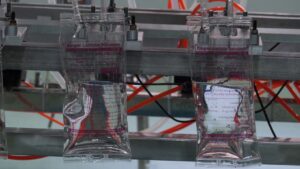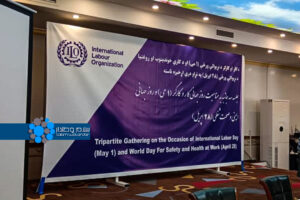HERAT CITY (SW) – There has been an increase in the number of people and patients visiting different areas of Herat for cupping treatment.
A number of officials of the ‘hijama treatment centers’ in Herat say that the number of patients has increased recently and patients with high blood pressure, sciatica, back and leg pain and blood fat are visiting them.
Hakeem Mohammad Rouhani, who owns a barber shop in Herat city, told Salam Watandar that his customers for cupping treatment have increased recently.
He said: “Islamic Sunnah medicine is progressing well and people are tired of chemical medicines to relieve back and other pains and are turning to Sunnah medicine. Hijama is considered one of the main pillars of Sunnah medicine.”
At the same time, another person in charge of the ‘hijama’ center, Sudis Nikfarjam, says that it is not useful for every disease and according to him, this work should be done after examination. He said: “Whoever has blood and heart fat and whose blood and heart fat have decreased and diabetes can also be treated. But those who have back pain, nerve pain or stomach pain, not only are they not treated, but their pain increases even more.”
Most of the people who have back pains and other pains come to the Herat for treatment. Abdul Wadud, who underwent two surgeries for his back pain, told Salam Watandar: “I didn’t think about getting a haircut a few years ago and I used to use the doctor’s medicine, but when the situation worsened, I came the barber shop for hijama.”
Another resident of Herat, Taha Yari, told Salam Watandar that he went to the barber shop for his headache treatment via hijama. He said: “I have a headache and pimples on my body. I want to get hijama and I hope I get better. It’s the first time I’m getting it.”
On the other hand, the officials of Herat public health department say that hijama treatment has not been legally included in the country’s health sector, and according to them, due to the lack of registration of hijama centers, proper monitoring of these centers has not been done.
Mohammad Asif Kabir, deputy director of the public health department of the province, told Salam Watandar that due to lack of hygiene, hijama harms the patient instead of benefiting them. He said: “We have seen some people who have been damaged and the public health department has taken action against them, but since most of them are not registered, there was little monitoring in the past.”
According to health professionals, due to the lack of awareness in Afghanistan, many people use it arbitrarily during illness or use other methods that harm themselves.
In addition to this, poverty, economic problems and lack of health services in the country have caused people to resort to self-medication and hijama.
ENDS






